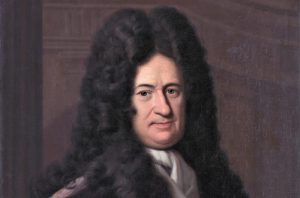Monism
Monism is a philosophical doctrine that maintains that the universe is formed by a single arche, which means a single cause or primary substance. In this way, the faithful of materialistic monism insist that everything around us is reduced to matter, while for spiritual monists or idealists, this unique principle is based on spirit, and for pantheists it is only God. For many philosophers, monism is the union of soul and body, because for them, these two aspects have no difference; on the contrary, they are a unique substance that constitutes the totality of things, which is also known by the name of arche.
What is monism?
Monism is a philosophical doctrine that teaches us that our universe is made up of a single arche, a single substance without differences. It is the union, for many philosophers, of the soul and the body, because they have no difference whatsoever being a unique substance.
Characteristics of monism
- For monists, the human being is a single unit.
- The soul and the body are not different; on the contrary, they are distinct manifestations of a unique substance that forms the totality of things.
- They establish a single principle to which everything real is reduced.
- They categorically deny the existence of the mind as a reality different from the brain.
- It can become gnoseological or metaphysical or the two things together.
- Today, it can arise as a kind of spiritualism which, without denying nature or its actions, encompasses them in the larger unity of a teleology.
History of monism
Monism was first used by the philosopher Christian Wolff in 1679. The term has a very long history and dates back to the pre-Socratic philosophers, who wanted to give a unifying principle in order to explain the diversity that existed in the world. One of his main followers was Parmenides, who said that reality was a single unit without any difference. It was greatly accepted by the Hindu religion and Buddhism. Neutral monism was introduced in the 17th century by the Dutch Jewish philosopher Spinoza. Today, a version of this theory has been evolved by the American philosopher Donald Davidson.
Types of monism
Metaphysical
It was established by the ancient Hindu philosophers who established as fundamental truth that the world is all illusion, and that plurality and cause are not real, since there is only one reality, and this is God. This type of monism has a tendency to mysticism. They consider that there is only one reality, which can be matter or spirit or something else beyond or here from matter or spirit.
Theological
It is not widely used in the area of theology as it tends to produce confusion. Completely opposed to polytheism, theological monism is accepted by Christian religion. For the theological monotheists, the universe is a God manifestation. Its main opponent is theism, a doctrine that also does not deny the presence of God, but it does disagree that the universe does not have a reality of its own.
Psychological
This type of monism seeks the way to eliminate the distinctions that are made between the body and the soul and does it through three different ways:
- Materialistic monism: denies that there is a difference between the soul and the body.
- Idealistic monism: seeks to reduce the body to the mind or the different types of mental conditions that exist.
- Psychophysical parallelism: It categorically denies that there can be a direct causal influence of the soul on the body and, furthermore, it affirms that the body and the soul are phases of something different that evolves its activities by means of parallel lines, physical, ways of thinking, without direct influence.
Epistemological
It is now known as absolutism. Its main principle is idealism. It indicates that the human being and objects are phases in an unlimited consciousness called the absolute and that things and thoughts are no different from that absolute.
Cosmological
It focuses mainly on the origin of our universe. The first Ionic philosophers believed that the main cause or arché that formed the universe was a substance of which the universe was formed. They believed that nature was very active because of its nature and that it is full of life. It was the one that provoked, sometime after its promulgation, a dualistic conception of the origin of the world.
Ethical
It doesn’t have many uses when it comes to ethics. Sometimes, this monism can be used to designate a doctrine that explains how the moral law is autonomous.
How to cite this article?
Briceño V., Gabriela. (2019). Monism. Recovered on 24 February, 2024, de Euston96: https://www.euston96.com/en/monism/










